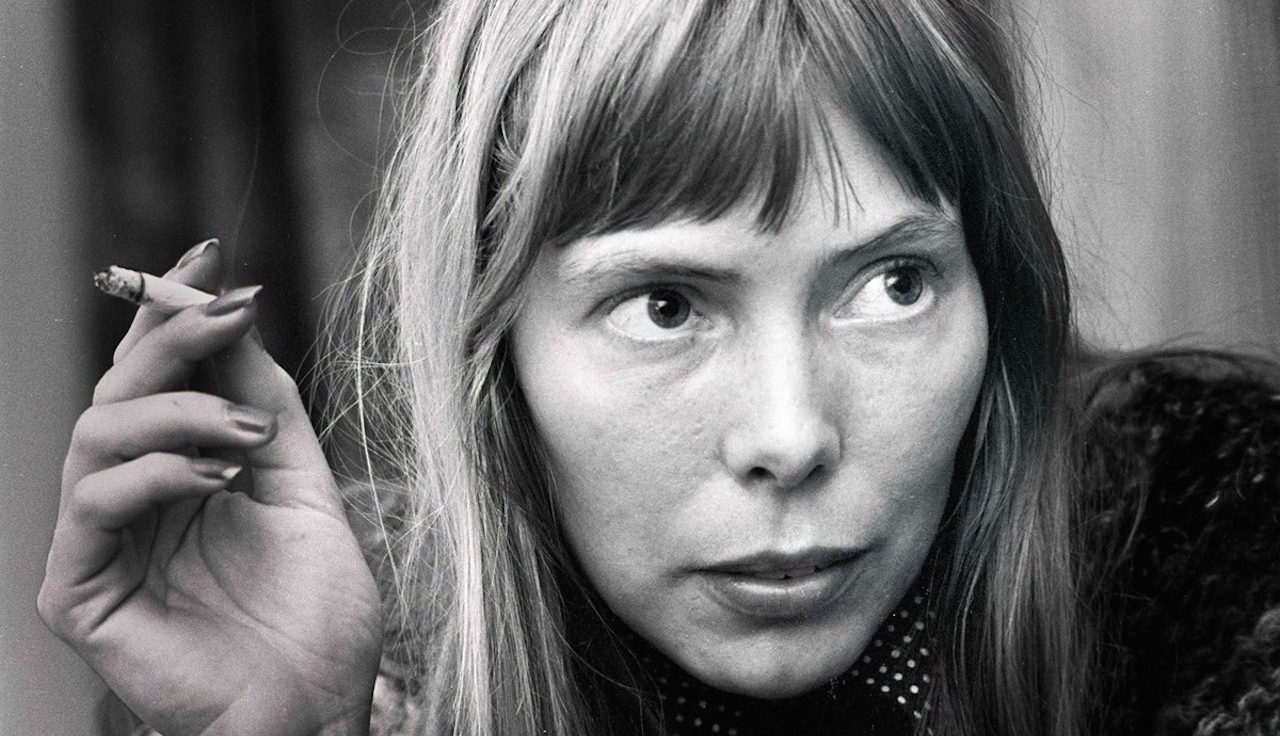Joni Mitchell: both sides
A new biography reveals beauty and the beast


What can one say about Joni Mitchell that hasn’t already been said? The beautiful singer/songwriter basically wrote a two-decade long soundtrack to the lives of most women (and many men) in the late 60s and 70s, during a time when burgeoning feminists grappled with wanting to be loved, be free, and be off to find themselves.
Who among us didn’t sit next the stereo speakers singing along to her tender tunes about growing up (“The Circle Game“), escaping the shackles of traditional marriage (“I Had a King“), embracing numerous lovers (“Cactus Tree“), strapping on our traveling shoes (“Hejira“), and becoming the thoughtful human beings we were meant to be (“Woman of Heart and Mind“)? Joni Mitchell’s albums have been such a huge part of our cultural consciousness and growth that you can match almost any emotion or situation to one of her perfect, heartfelt songs and, magically, not be alone in your feelings.
So who is this solo singer giving voice to millions of souls? We’re only a couple of Google searches away from knowing many details of Roberta Joan Anderson’s interesting life. But in Reckless Daughter: A Portrait of Joni Mitchell, a new biography of the 74-year-old singer, writer David Yaffe digs deep into Joni’s Canadian roots, discovering a difficult and lonely past that helped shape this formidable woman.
Any Joni fan worth her salt knows the who’s who of famous men she both loved (Graham Nash, Leonard Cohen, David Crosby) and eventually loathed (James Taylor, Jackson Browne). A precursor to Taylor Swift, Joni’s lyrics were packed with subtle hints that kept fans guessing for years. Here, Yaffe not only identifies many of Joni’s lovers, he interviews them, too.
The second half of the book is where things get complicated in our adoration of the difficult singer. Rightfully angry and bitter for the lack of recognition of her immense intellect, artistry and musical genius, Joni abandoned folk rock music in the mid 70s, turning to jazz, and losing many of her loyal fans. She also took a strange turn by creating a black persona, Claude the Pimp, and wearing blackface on the cover of her 1977 album, Don Juan’s Reckless Daughter, which, let’s be real, would’ve ended her career if she had done that today.
See what we mean by complicated? But after years of singing our souls so perfectly in tune, Joni can be as cranky and crazy as she wants to be. Honestly, we’d give anything to have another album like Blue from this amazing artist to help us get through the next emotional land mine.
Reckless Daughter: A Portrait of Joni Mitchell is out now.


